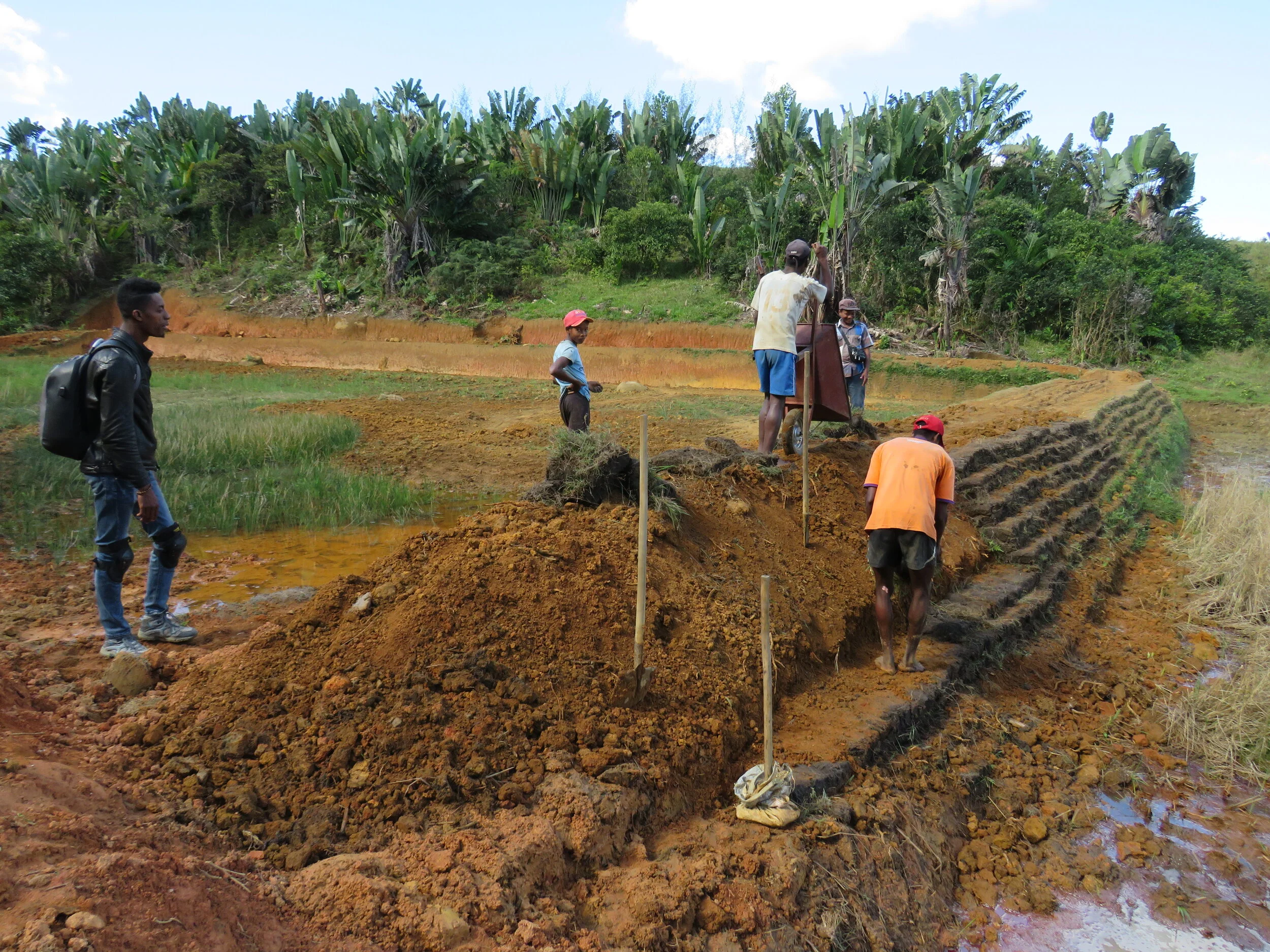Tilapia farming exceeds all expectations
The film shows several projects under the auspices of the German relief organisation GIZ's programme on Madagascar. Two minutes into the film, you can see Norges Vel's project in Brickaville.
Despite corona-related challenges, tilapia farmers on Madagascar are enjoying extremely gratifying results. Already in 2020, they produced 14 metric tonnes of fish, four months ahead of schedule.
"The 50 fish farmers involved in this project, which is supported by the German development cooperation organisation GIZ, have excavated their first dams, and 33 of them are working on dam number two. We expect that all 100 of the planned dams will be farming tilapia in 2021", smiles Project Manager Anne Mugaas of Norges Vel.
The 14 tonnes of tilapia were harvested and sold on markets in the capital city of Antananarivo and the port city of Tamatave, near the project site. In addition, the fish farmers held onto the smallest fish since they do not bring a profit at market.
Delays due to COVID-19
"Dam building took longer than initially planned due to COVID-19. From March to June 2020, it was especially difficult for technicians from TDE to offer instruction in dam building and fish farming. Mobility restrictions meant that people could not move freely between the coast and the capital city. It was also difficult for the fish farmers to help each other build dams. The markets' limited business hours, curfews for the citizenry and rather limited purchasing power delayed the sale of the fish, but this improved as the year progressed", reports Mugaas.
In an attempt to make up for lost time, the fish farmers were advised to build dams almost twice as large as initially planned (700 m2). This, in turn, led to more income and production.
The value chain is growing, and revenue streams are rising
"The value chain from dam building to the sale of fresh fish on ice is under continuous development. The women who resell the fish to local markets from the fish farmers' co-op are earning more. Those who haul the fish and the men who help with dam building have experienced the same thing", comments Mugaas.
The fish farmers are organised in a recently established cooperative associated with Tilapia de l’Est (TDE). TDE is also owned by several other coops, along with a high-quality breeding hatchery that contribute inputs/access to feed, technical assistance, business training, marketing/sales, and facilitates dialogue with the authorities.
Training the Madagascan authorities
As part of this project, TDE has also provided training for employees of the Ministry of Agriculture, Animal Husbandry and Fisheries on Madagascar. The Ministry wants to keep up to date on the new techniques used in the profitable model for tilapia farming that Norges Vel and TDE have developed since 2011, with Norad's support.
"The participants were employees of the Ministry at the regional and national levels. They were well satisfied with the introduction into how the model works and what kind of training the fish farmers are given, not least because more women are participating at all levels, from production to management", Mugaas continues.
The training is part of a larger project being run by GIZ, aimed inter alia at more cooperation with the authorities and other players in the sector. They also want to influence the general conditions for aquaculture, especially for freshwater fish farming on Madagascar.




